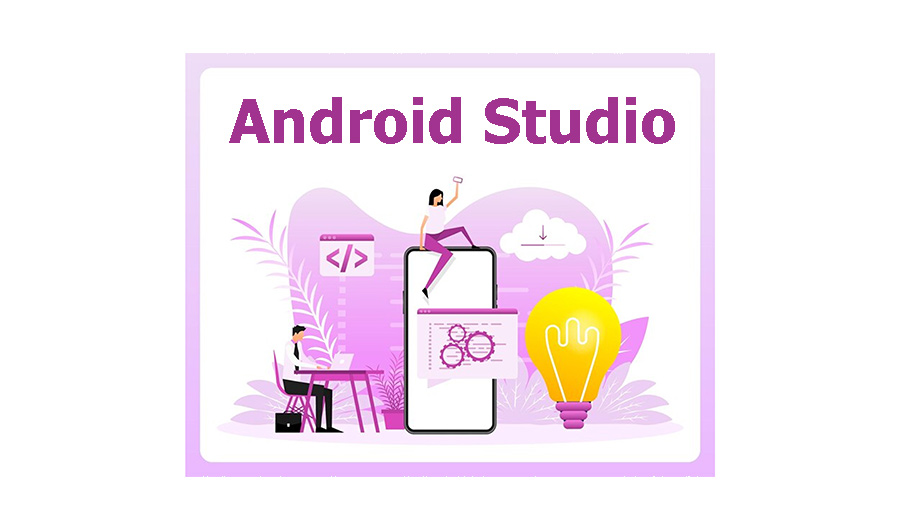
Making The Most Of Android Studio: Hidden Features And Productivity Hacks
We have seen tremendous growth and technological advancements in recent years, making everything efficient and convenient. Android apps have provided us with endless possibilities at our fingertips.
Thanks to the Android app development service and developers, seamless integration between mobile apps and emerging technologies is possible. More than 2.6 million apps serve the needs of Android users worldwide.
Android developers can use several hacks and hidden features in Android Studio to scale their development process and deliver apps that meet users’ expectations.
Let’s find out the hidden features and hacks in the following sections.
Android Studio – An Overview
Android Studio is software from Google. It helps developers build Android apps. Android Studio has many tools in one place. The tools help developers write code and test apps for Android app development services.
Android Studio has tools for editing code, debugging issues, and analyzing performance. These features simplify app development and let developers create apps with intuitive, functional user experiences.
Android Studio Features And Hacks – Maximizing App Development Efficiency
Developers use Android Studio to build Android apps. It has useful tools for faster work. These tips help get more from Android Studio’s hidden features: Short sentences.
Some longer phrases, varied structure. Android Studio streamlines workflow and improves output quality. Hidden features boost productivity. Overall, a great aid for app developers.
Code Completion And Refactoring
Android Studio’s intelligent code writing is brilliant. The IDE recommends methods, variables, and classes—you type, it completes. Coding time saved and errors are reduced. This feature has significant appeal to users as it helps streamline coding.
Android Studio has great tools for fixing code. Developers can change the names of variables or methods easily. Also, they can combine code into single methods. Last, they can quickly organize import statements. Using shortcuts makes things go faster. “Ctrl + Space” finishes writing the code. “Ctrl + Alt + L” formats code nice and clean. Efficient coders keep code tidy!
Instant Run
Long gone are the days when coding modifications needed app rebuilds. Now, Android Studio’s Instant Run simplifies things. Developers just edit their code, and it reflects immediately on running apps or devices —no waiting required.
This feature, enabled via settings, empowers rapid iteration. Devs can continuously tweak their apps in real-time, speeding up development cycles. Code changes? No more time-consuming restarts needed. Instant Run provides that seamless, quick-paced development experience.
Layout Editor and Constraint Layout
Android Studio simplifies making slick interfaces. Its Layout Editor lets you visually design UI parts. Constraint Layout gives you lots of flexibility for complex layouts.
Using frameworks and infer constraints allows you to create responsive designs. These designs adapt smoothly to different screen sizes and orientations, making development easier.
Code Templates And Live Templates
Android Studio offers many built-in code templates and the ability to create custom live templates to accelerate coding tasks and reduce repetitive typing. These templates provide a foundation for creating common Android components such as activities, fragments, and adapters, allowing developers to kickstart their development process easily. Developers can eliminate boilerplate code by customizing live templates for frequently used code snippets and enhancing coding efficiency.
Version Control Integration
Working together smoothly and handling code well are key parts of making apps today. Android Studio works great with version control systems like Git. This makes it easy to team up on projects and track code changes.
Mobile App Developers can use things like Git integration, seeing the commit history, and branching workflows. It helps them work together, see code changes, and keep the code good through the whole making process.
Profiler And Performance Optimization
Performance is crucial for a smooth user journey. Android Studio offers strong tools to examine CPU, memory, and network use, uncover performance bottlenecks, and optimize resource utilization effectively.
Simple sentences. Long sentences next. Features like method tracing, memory allocation tracking, and network profiling enable developers to diagnose and resolve performance issues professionally. They ensure apps perform optimally on diverse devices and network conditions.
Plugins And Extensions
Android Studio has many add-ons and extras, These of which come from a giant plugin store. Coders can gain new powers by getting plugins tailored to their needs.
The plugins can check code, design UIs, test stuff, and more. Whether you want new tools, better code quality, or faster coding, exploring the many plugins can open up new chances and make coding easier.
Exploring Advanced Tools In Android Studio
Using the advanced tools Android Studio provides is crucial for optimizing workflow and building top-notch applications. Android Studio offers several advanced features to help developers create robust, seamless apps. Here are some of the advanced tools you should know:
Profiler
The Profiler tool provides insights into your app’s performance. It tracks CPU, memory, and network activity in real-time. This helps identify areas for optimization, ensuring a smooth user experience.
Layout Inspector
The Layout Inspector helps debug and refine your app’s user interface. It visualizes the UI element hierarchy. This lets you diagnose rendering issues, achieving pixel-perfect designs across devices.
Code Analysis Tools
Android Studio provides robust code analysis tools to maintain code uniformity and adhere to best practices. Use tools like Lint to identify potential bugs, performance optimizations, and coding style violations to ensure a reliable and manageable codebase.
Android Virtual Device (AVD) Manager
AVD Manager helps you test your app across many virtual devices. Create custom device configurations to enhance your app’s compatibility with different screen sizes, resolutions, and Android versions.
Firebase Integration
Seamlessly integrate Firebase by Android Studio into your Android projects to add powerful features such as Analytics, Crashlytics, Cloud Firestore, and Authentication. Gather user insights and monitor app stability to enhance the overall user experience.
Image By Freepik






